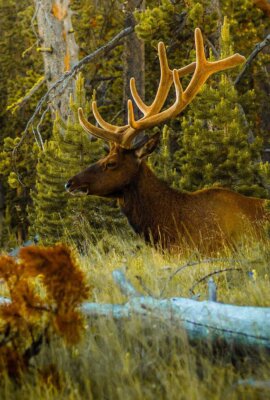Your full Wanderlust guide to
Uganda

Although it was once synonymous with Idi Amin, these days Uganda has a different headline act: the mountain gorillas that roam Uganda’s dense jungle interior. The dark days of dictatorship are long gone and a spell in this mesmerising country will make your heart beat faster for all the right reasons.
Uganda doesn’t do things by halves and there is a smorgasbord of heavyweight attractions – the source of the Nile, the highest mountain range in Africa, the world’s most powerful waterfall and, of course, opportunities to come face to face with one of the most awesome creatures on earth: the mountain gorilla.
You can’t miss

Wanderlust recommended
Eyeball a muscle-bound mountain gorilla in the Impenetrable Forest at Bwindi.
Seek out another of man’s relatives and track chimpanzees in the Kibale Forest National Park.
Take in the dramatic sight of thundering Murchison Falls.
Tumble down the wild rapids at Jinja. The source of the Nile offers world-class white water rafting.
Stride out into the legendary Mountains of the Moon in Rwenzori Mountains National Park.
Get your cameras at the ready to capture the curious spectacle of Ishasha’s tree-climbing lions.
When to go
Uganda is warm all year round. Temperatures range between 21-26ºC but are tempered by altitude – up high it’s far chillier. There are two rainy seasons – March-May and mid-September-November, which are best avoided if you plan to hike or camp.
International airports
Entebbe (EBB) 35 km from Kampala.
Getting around
There are no passenger trains and hardly any ferries. Buses and matatus (minibus) are cheap but unreliable and not much cop if you want to explore the parks. Boda-bodas (motorbike taxis) are for those with nerves of steel.
Roads are of a reasonable standard and self-drive car hire is available but fuel is expensive. You can also book cars with guides. The terrain is generally flat enough to get around by mountain bike and buses will usually let you transport your bike on the roof.
Accommodation
Throughout Uganda accommodation to suit all tastes and budgets is easy to come by. The local lingo can be confusing – self-contained means an en suite hotel and in Swahili hoteli refers to a restaurant.
Upmarket hotels and swanky bush lodges come equipped with en suites, mosquito nets, TVs and air conditioning or fans. Budget hotels are of a reasonable standard and usually have en suites, mosquito nets, fans and running water.
At the lowest end of the spectrum are guesthouses – rather insalubrious rooms set around a courtyard with shared toilets. Numerous organised campsites can also be found.
Food & drink
Food is simple, cheap and filling. Meals usually consist of rice, chapatti, ugali (maize porridge) or matoke (cooked plantain) with a meat or chicken stew. Everything can be flavoured with groundnut sauce. Kampala offers greater variety if Ugandan cuisine doesn’t float your boat.
Vegetarians don’t fare well unless they make a beeline for Indian eateries. Chai (sweet tea) is widely drunk and the best beer is Nile Special.
Health & safety
Some areas, especially the north, are plagued by banditry – check current safety advice before travelling.
Kampala is relatively safe although there have been reports of theft from cars stuck in traffic and drugging on buses and in bars. Security has been stepped up since the Bwindi massacre, where eight tourists were killed on a gorilla trek.
Most towns have medical facilities and English-speaking doctors. Take precautions against malaria, yellow fever, meningitis and insect bites (namely tsetse, tumbu and blackflies, ticks and sandfleas). Avoid swimming in water with a bilharzia risk. Rates of STIs are high; many travellers get stomach upsets.




















